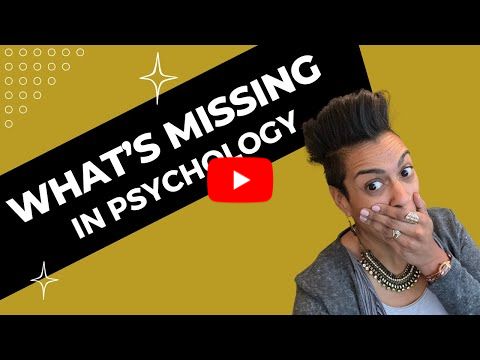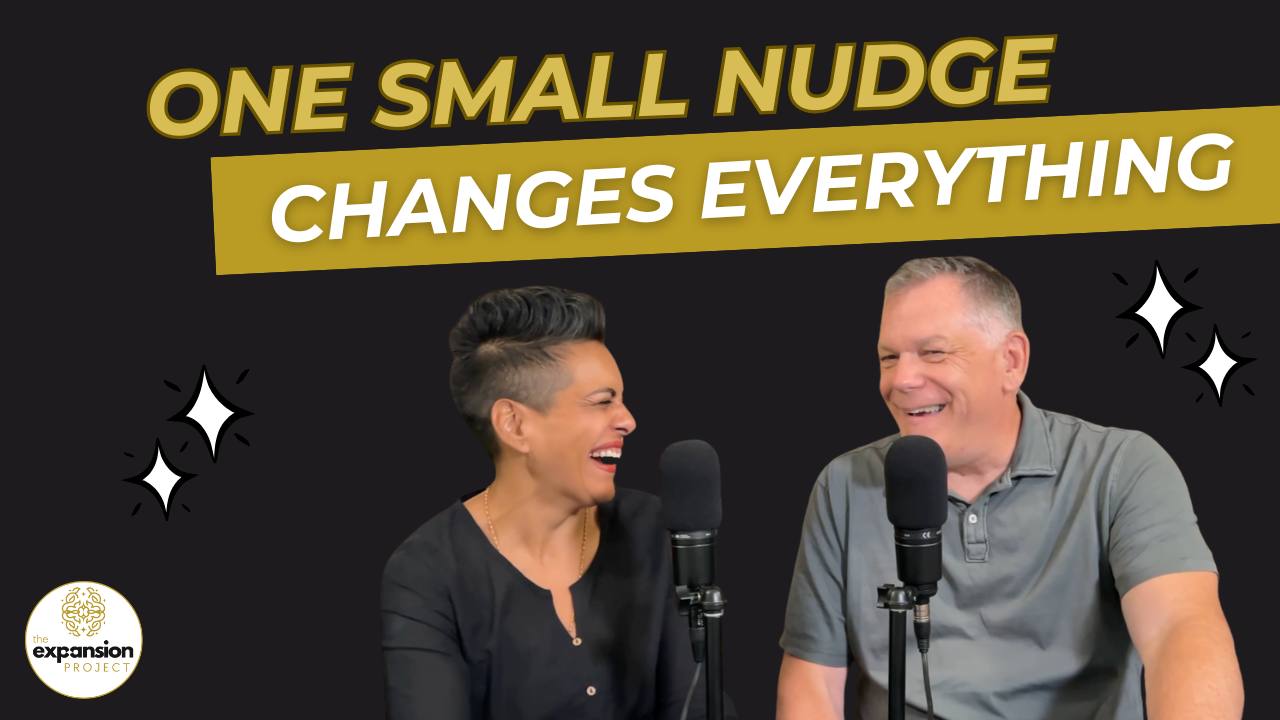The Problem with Psychology
Have you ever wondered why with more trained professionals than any other time in human history, we still haven't been able to solve the mental health crisis? In this week's video, we explore the two key elements that are missing in mainstream psychology: community and spirituality.
|
This week, I decided to make the video that will catapult us all into the next wave of healing.
It feels big.
Here we go.
So let's start with the back-story.
Much of the training in the fields of Western psychology and medicine place the helper/healer in a expert-position. This means that the professional has to have all the answers and the person's own intuitive knowing is not a legitimate input in the healing process.
Sometimes what people know in their gut to be true is directly challenged or discredited by health professionals.
It's heart-wrenching for me to hear the stories about people who have reached out to a health professional because they knew something was not quite right and were ignored. It was only months later when they were in a health crisis that anyone took them seriously. How many times have I heard, "My therapist/doctor just didn't get it," or "No one believes me when I tell them...."
Why is this happening?
One of the crucial elements of mainstream training as a health professional is to teach budding doctors and therapists to quiet or eliminate their own natural human responses to suffering so they can maintain distance and objectivity as they interact with fixing bodies and brains.
What that results in is an entire medical system that does not know how to offer deep connection with Self and others or do any sort of transformational healing work but rather gets really focused on symptom-management.
What's worse is that users of that system are told that if the intervention isn't working, it's probably OUR fault!
That's how it's all designed.
But what if the basic premise of healthcare is flawed? What if we are not simply brains walking around in machine-like bodies where different pieces can be removed and replaced when they are worn out or damaged?
What if we are more than robots that can think?
So how did we even get here? Glad you asked!
Around one hundred years ago, American and European psychologists and psychiatrists tried really hard to legitimized the emerging field of psychology by bringing it into hospitals. Patients were treated with evidence-based interventions (like submerging people in ice-baths to shock their brains out of depression!) and the same rigour that was being used in the body-based medical sciences was applied to the science of the mind.
While this was happening in Europe and the United States, something very different was happening in other cultures around the world. For example, for many thousands of years in India, yogis were becoming masters of their inner landscapes through meditation and self-reflection. These inner explorations were often led by a seasoned guru (or teacher). The seeker was seen as the expert on their own experience if they were willing (and able) to do the work of going within, and the teacher was available to help when the student got stuck.
The mind, body, spirit, community, and environment were intrinsically connected and so many factors were addressed when healing was needed.
Consciousness was understood as something much more rich and nuanced than the observable processes of the physical organ of the human brain.
With the spread of mainstream European culture and philosophy over the last few hundred years, many cultures around the world had to swallow the idea that we are individual, disconnected beings who need experts to fix us when we are broken. In many communities (including earth-based traditions in Europe!) traditional healing philosophy and modalities went underground.
Okay, history lesson over.
How do we change things?
Let's be honest: I love modern, Western medicine when there is an emergency. Give me that cast when my kid breaks her arm - yes please!
But as far as staying healthy, full of vitality, and living a balanced life, mainstream, allopathic healthcare doesn't have much to offer in that arena. To top it off, mental health is lumped in as an extension of physical health with no acknowledgement of the gaping hole in the very philosophy underlying the whole system.
What's needed now?
As people who are waking up to the mind-body-spirit-community-environment connection, there are some things we are starting to acknowledge and speak out about.
For example, can we acknowledge that we are social mammals that need meaningful, authentic connection to thrive?
Can we acknowledge that we are more than just machines that can think?
Can we acknowledge that we are eternal, spiritual beings who are having a time-limited experience of physical, three-dimensional reality?
Can we be willing to see ourselves as complex, multi-layered, energetic beings that have sovereign agency over our bodies, minds, and souls?
Can we pull from the incredible wealth of globally-informed wisdom that Transpersonal Psychology offers so we are not locked in to those old ways of addressing (or ignoring!) human connectedness and consciousness?
I believe we can.
I believe we can be brave enough to have these conversations with people who are coming away wounded from our broken system.
I believe we can bring community and spirituality back into the conversations around mental health and wellness so the next generation can have language and tools to address the emptiness that consumes so many adults who seem to have it all.
I believe that together, we can start to build the new thing that we have been waiting for, some of us for lifetimes.
Yours in Crafting it OUR Way,
Dr. Saira






Responses